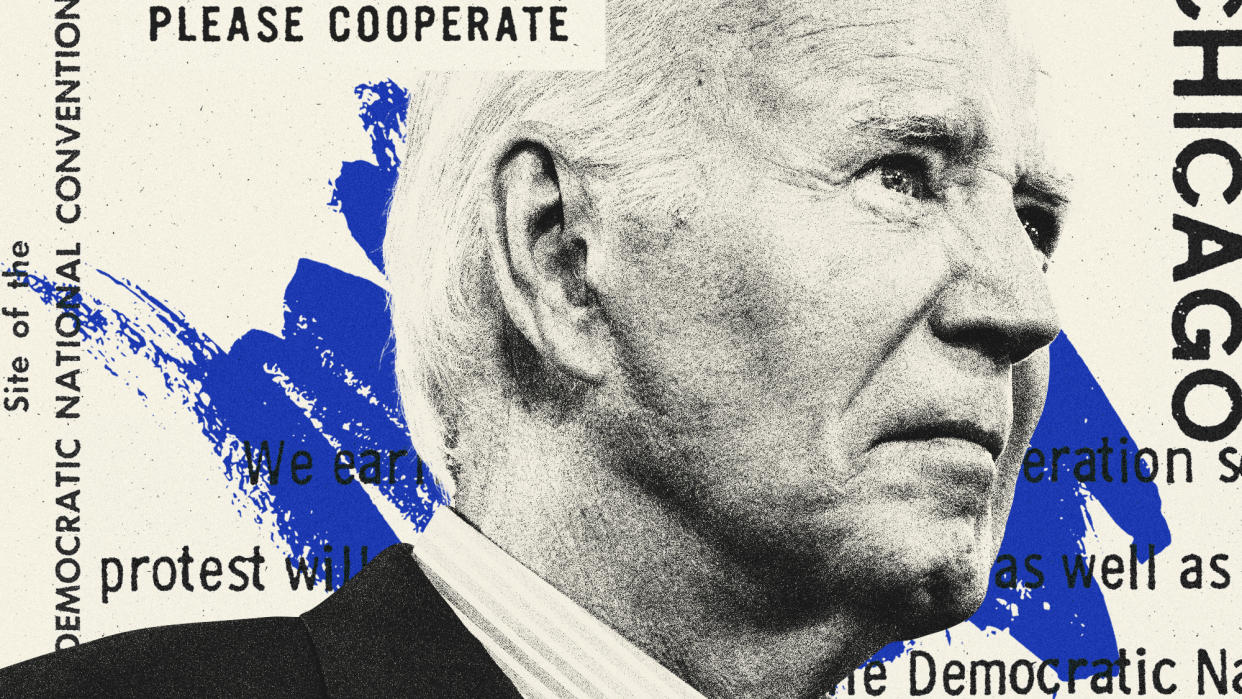What happens if Joe Biden steps down?

President Joe Biden has been adamant that, despite his widely panned performance in the first presidential debate against Donald Trump, he will nevertheless continue running for a second term in office. Defying a growing chorus of Democratic figures demanding he step aside for the good of the country, "the bottom line here is that we're not going anywhere," said Biden in an interview with MSNBC's "Morning Joe."
Biden's refusal to entertain leaving the race has done nothing to tamp down concerns that, at 81, he is simply not the politician he was when he defeated Trump four years ago. Betting markets have already begun circling around Vice President Kamala Harris as a replacement candidate. At the same time, major campaign donors have started "wielding their fortunes as both carrot and stick" to convince Biden to stand aside," The New York Times said. No matter how much the president and his team have worked to move past worries around his age and mental acuity, it's clear that a sizable portion of Biden's base remains deeply unconvinced.
There has been ample speculation as to who might replace Biden on the presidential ticket should he eschew his party's nomination, but the truth is that there are multiple steps to consider before any successor is chosen.
What did the commentators say?
Currently, Biden has nearly 4,000 Democratic primary delegates — almost twice as many as necessary to lock in his party's nomination. If he voluntarily drops out of the race before the Democratic National Convention later this summer, those delegates "would be free to support another candidate of their choice" at the convention, USA Today said. Not only would this be the "most straightforward scenario," it would also most closely resemble the historical precedent set by past conventions when candidates would "go from one state delegation to another to make their case." Dropping out before the convention would be "legally easy but politically difficult," said CBS News. Dropping pre-convention also means Biden would "likely have significant influence" in helping coalesce support around his preferred successor — likely Harris — within the party's base.
If Biden doesn't step down, "there is currently not enough opposition within his own party to remove him from the ticket," said University of Portsmouth teaching fellow and election researcher Dafydd Townley. The "mechanics" of forcing a candidate to step down against their will would be "chaotic at best, if it is even possible," agreed ABC Action News. Nearly every Democratic delegate is currently pledged to Biden, and while party rules allow for a "conscience clause" that lets them break that pledge it is "rarely, if ever, exercised," The New York Times said.
If Biden were to exit the race after accepting the party's nomination during the convention, things get slightly more complicated and considerably more straightforward at the same time. While the process differs between Democrats and Republicans, should Biden drop out post-nomination, the Democratic National Committee is "empowered to fill a vacancy on the national ticket," — thereby avoiding a messy convention-floor fight — but only "after the party chair consults with Democratic governors and congressional leadership," CNN said.
What next?
Biden himself has publicly precluded any chance that he will drop out pre-DNC and even dared party figures and potential challengers in an interview with MSNBC this week to "run against me. Go ahead. Announce for president. Challenge me at the convention."
In fact, by the time Democrats gather in Chicago for the DNC, Biden may already have been officially nominated by the party to "meet a ballot certification deadline in Ohio on that date," CBS News said. Because of that, "I don't know what that looks like in the event that there's going to be a contested convention," University of Notre Dame Political Science Professor Derek Muller said to the network.
For those looking to history for some analogous precedent, the last time an incumbent dropped out of a race mid-campaign was in 1968, when Lyndon Johnson abandoned his reelection bid ahead of that year's chaotic DNC in, coincidentally, Chicago. As the "only time a major party had to replace its candidate in mid-cycle," Politico said, the "result was disastrous."
